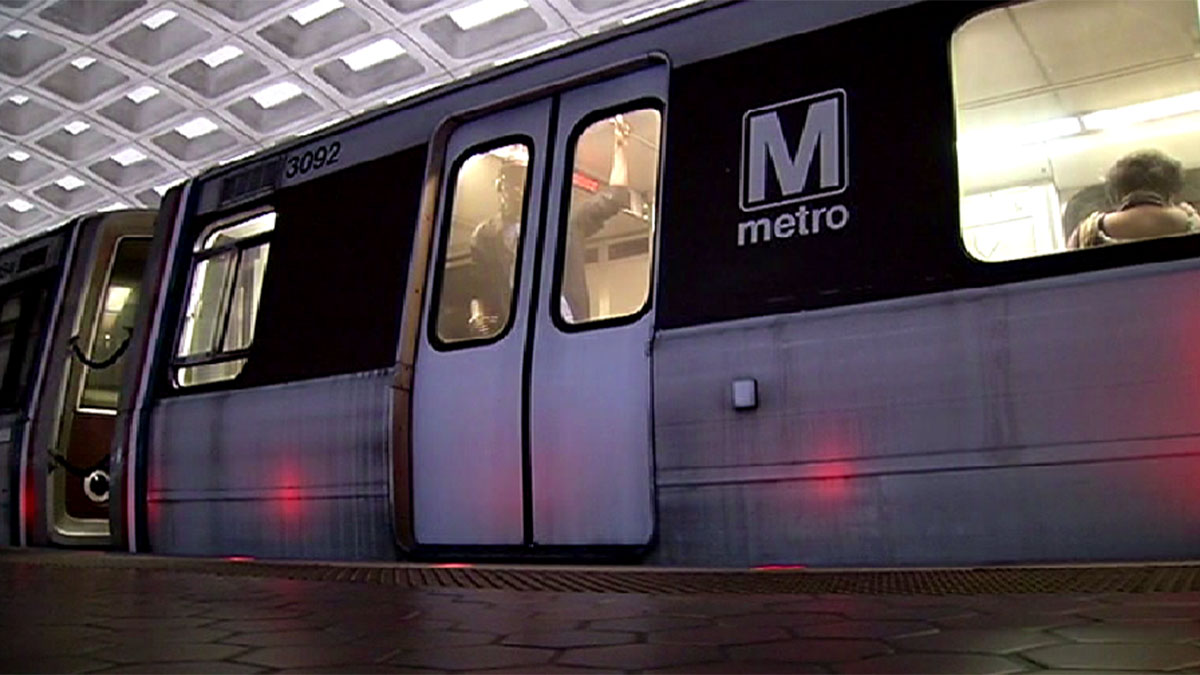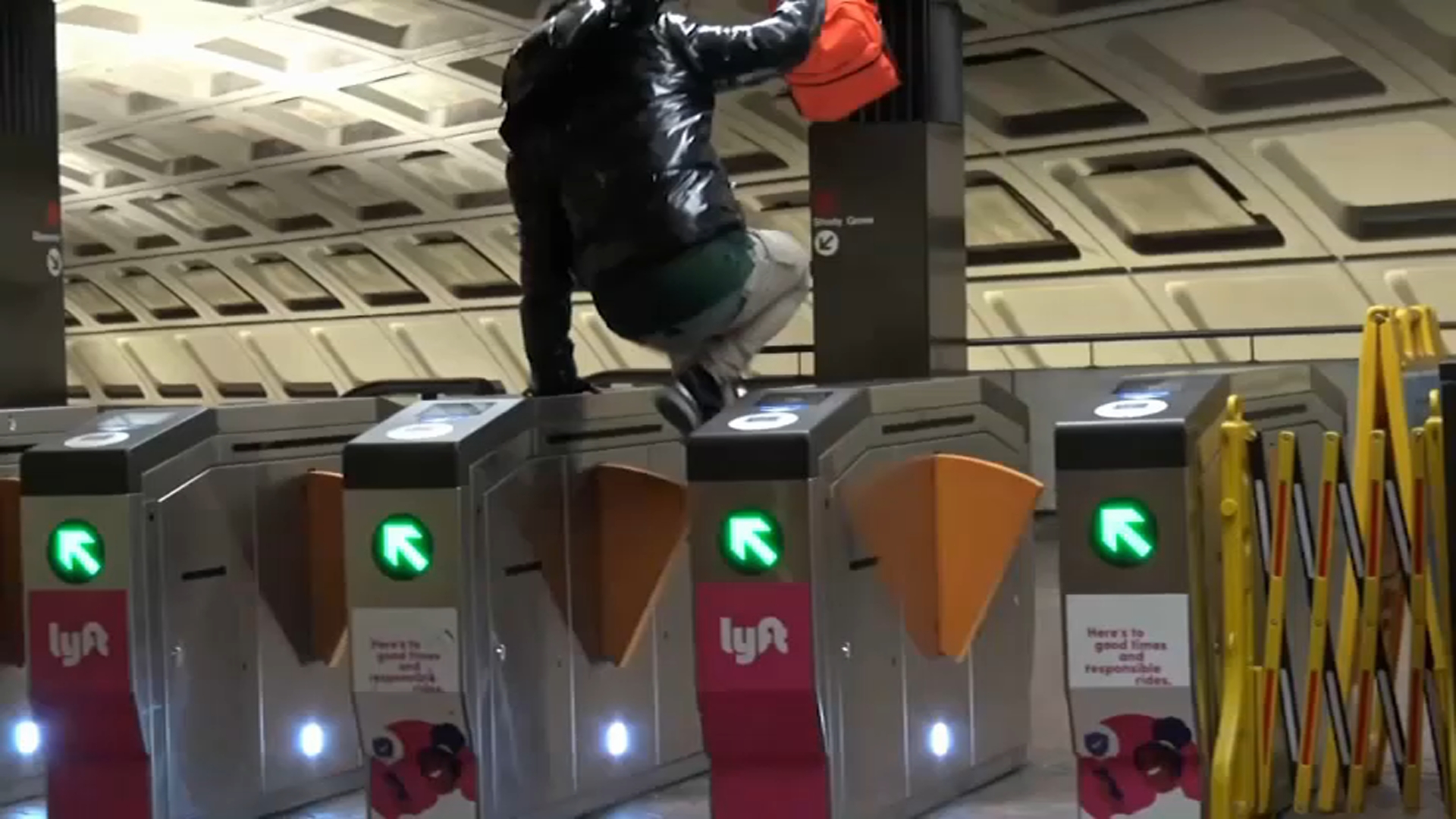Hours after announcing reduced service on the Blue, Orange and Silver lines due to a safety watchdog report that "sidelined" more than 50 rail operators, the Washington Metropolitan Area Transit Authority says those delays are no longer necessary.
In a news release, Metro said that "customers will not experience rail service impacts that were previously announced... trains will continue to arrive every 15 minutes."
The rapid 180 is thanks to the Washington Metrorail Safety Commission (WMSC) reviewing and placing a stay on their own safety directive until Jan. 24 of this year, following outcry from the transit authority.
"The WMSC has granted Metrorail a stay until January 24, 2023 of our directive requiring Metrorail to provide a list of train operators Metrorail certified despite not meeting Metrorail’s safety training requirements," WMSC said in a Monday afternoon statement. "Related investigation and inspection activities continue as the WMSC awaits documentation from Metrorail regarding new information Metrorail provided earlier today."
Metro was going to reduce service because there weren't going to be enough operators or trains available after one of those directives was issued over the weekend. The WMSC directives would have forced Metro to instruct operators and pause a program returning 7000 series railcars to the tracks, officials said.
Trains on those three lines were set to run every 25 minutes from Tuesday, Jan. 17 through at least Sunday, Jan. 22. Red and Green line service was not going to change.
“This is necessary to comply with the WMSC directives to retrain our rail operators who completed all hours of training in the cab with an instructor and completed an independent certification exam per our Metro requirements,” Metro General Manager Randy Clarke said Monday morning when he announced the now-unnecessary service delays.
Metro appealed the two directives, and says they are “not based on risk analysis or facts."
That appeal led to an "expedited review and stay" of the directive about operator training, eliminating the need for delays.
On Friday, the WMSC released a scathing report saying some train operators are unqualified to be on the job.
Metrorail was “actively ignoring its train operator training and certification processes,” WMSC said.
The safety commission said Metro leadership told managers to “make no trains available for training.” It also alleged that Metro stopped giving new operators time behind the wheel with an instructor.
Metro says the operators are certified and received adequate training, although there were changes after the agency had to pull all the 7000-series cars — which represent 60% of its fleet — following a derailment on the Blue Line in October 2021.
"The limited availability of 7000 series rail cars required for that training prompted our operations and safety managers to adjust the training, combining the eight hours we used to provide for non-revenue passenger trains with the 30 hours of training in passenger service," Clarke said.
Metro safety chief Theresa Impastato explained the changes in the training process.
According to Impastato, operators have always had to complete classroom instruction, and pass a written exam, before any practical training. That did not change.
Previously, after the written exam, the student operators entered an eight-week rotation known as "Yard Practical Training," or YTP. While under instructor direction, the student operators learned to operate the trains in different rail yards around the WMATA system, practicing starts and stops, handling and troubleshooting of the trains, Impastato said.
The eight-week rotation gave those students up to eight hours of training, all done on trains without passengers, but traveling on the main Metro lines.
Student operators then had to complete "no less than 30 hours" of training "in active revenue service" -- on a train picking up paying passengers -- also under the direct supervision of an instructor, Impastato said. After at least 30 hours, their qualifications were verified and they completed another certification exam.
Because there were not enough trains available, Impastato said, Metro adjusted the ratio of training that had to be completed. The total number of 38 training hours did not change, but if a student lost out on two hours of YTP training without passengers, for example, they could make up that time and complete 32 hours in active revenue service training with an instructor.
"We have nobody out there driving a train that doesn't have all of the required time," Clarke said.
Clarke said Metro could have done a better job documenting that adjustment, but “it was not done in a vacuum… and did not compromise safety.”
Impastatos said there's no evidence of attempts to deliberately conceal information about the change from the WMSC, but that the change and the decision-making process was not formally communicated, "and that is something that WMATA needs to address. WMATA has room to improve relative to documenting the basis for decision making."
The retraining of those operators, which WMSC said must be completed by Thursday at 5 a.m. according to Clarke, takes those operators and some trains out of commission, which would have led to train delays.
However, WMSC issued a stay on that directive on Monday afternoon.
"We appreciate the Washington Metrorail Safety Commission for their expedited review and stay of their directive related to rail operator training. Customers are the real winners in this process," Metro said in the release issued Monday afternoon. "We also appreciate WSMC’s commitment to timely consider our petition on moving to Phase 3 of our 7000-series train Return to Service plan."
The issues with returning 7000 series cars to service, caused by the second safety directive that WMATA is appealing, will have longer-term impacts on service.
“Without this next step, we are unable to ramp up rail service," Clarke said.
Clarke said that Metro isn't currently fighting one of the WMSC directives regarding roadway worker protection training.
Metro’s leaders announced the service disruption during a virtual briefing Monday to address what they discussed in a closed-session, emergency meeting Sunday.
The safety commission pointed out several concerning incidents. In July 2021, a train operator didn’t know Franconia-Springfield was the end of the line. In November, an operator worked 30 days in a row and blew past track workers at an excessive speed. And in December, an operator “didn’t know where they were in the system” and ran a red signal.
The safety commission also said Metro promised last April to make a number of safety fixes, such as increasing the amount of training for operators. But according to the commission’s report, the transit agency has already fallen behind on that plan and missed the first deadline.
Metro on Friday said it’s implementing new training procedures after finding that recent trainings didn’t follow the proper sequence. Sixty-four operators who were in classes that didn’t follow the proper sequence will be given extra training, Metro said.
News4 has reached out to WMATA about the meeting.
The Yellow line is currently being serviced by Blue line trains, as construction continues on the new Potomac Yard station between the National Airport and Braddock Road stops. It was not immediately clear how the now-unnecessary delays to Blue line trains would have affected Yellow Line riders.
This is a developing story. Stay with News4 for more updates.



